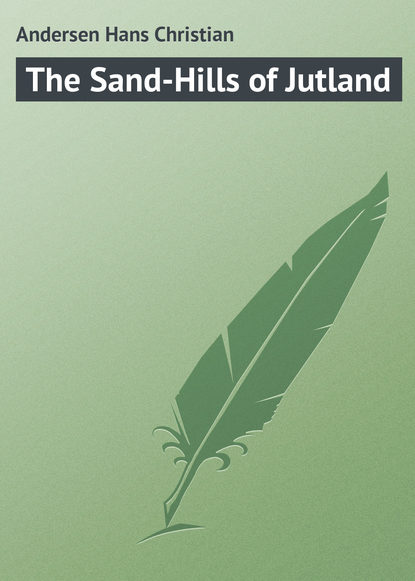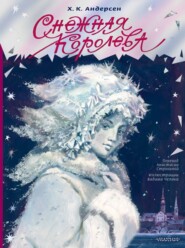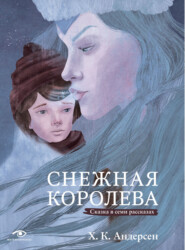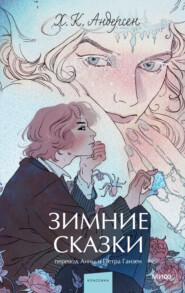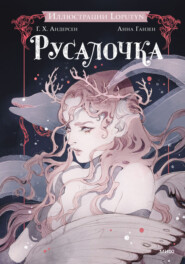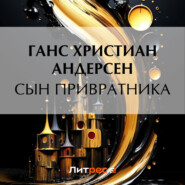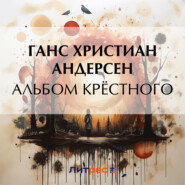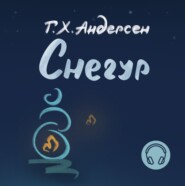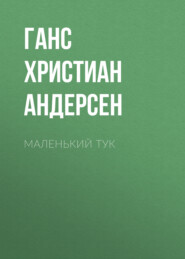По всем вопросам обращайтесь на: info@litportal.ru
(©) 2003-2024.
✖
The Sand-Hills of Jutland
Настройки чтения
Размер шрифта
Высота строк
Поля
"What are these white clouds that seem so stationary?" asked Helga.
"These are the mountains covered with everlasting snow that thou seest," said her mother; and they flew over the Alps towards the blue Mediterranean.
"There is Africa! there is Egypt!" cried in joyful accents, under her swan disguise, the daughter of the Nile, as high up in the air she descried, like a whitish-yellow, billow-shaped streak, her native soil.
The storks also saw it, and quickened their flight.
"I smell the mud of the Nile and the wet frogs," exclaimed the stork-mother. "It makes my mouth water. Yes, now ye shall have nice things to eat, and ye shall see the marabout, the ibis, and the crane: they are all related to our family, but are not nearly so handsome as we are. They think a great deal, however, of themselves, particularly the ibis: he has been spoiled by the Egyptians, who make a mummy of him, and stuff him with aromatic herbs. I would rather be stuffed with living frogs; and that is what ye would all like also, and what ye shall be. Better a good dinner when one is living than to be made a grand show of when one is dead. That is what I think, and I know I am right."
"The storks have returned," was told in the splendid house on the banks of the Nile, where, within the open hall, upon soft cushions, covered with a leopard's skin, the king lay, neither living nor dead, hoping for the lotus flower from the deep morass of the north. His kindred and his attendants were standing around him.
And into the hall flew two magnificent white swans – they had arrived with the storks. They cast off the dazzling magic feather garbs, and there stood two beautiful women, as like each other as two drops of water. They leaned over the pallid, faded old man; they threw back their long hair; and, as little Helga bowed over her grandfather, his cheeks flushed, his eyes sparkled, life returned to his stiffened limbs. The old man rose hale and hearty; his daughter and his grand-daughter pressed him in their arms, as if in a glad morning salutation after a long heavy dream.
And there was joy throughout the palace, and in the storks' nest also; but there the joy was principally for the good food, the swarms of nice frogs; and whilst the learned noted down in haste, and very carelessly, the history of the two princesses and of the lotus flower as an important event, and a blessing to the royal house, and to the country in general, the old storks related the history in their own way to their own family; but not until they had all eaten enough, else these would have had other things to think of than listening to any story.
"Now thou wilt be somebody," whispered the stork-mother; "it is only reasonable to expect that."
"Oh! what should I be?" said the stork-father. "And what have I done? Nothing!"
"Thou hast done more than all the others put together. Without thee and the young ones the two princesses would never have seen Egypt again, or cured the old man. Thou wilt be nothing! Thou shouldst, at the very least, be appointed court doctor, and have a title bestowed on thee, which our young ones would inherit, and their little ones after them. Thou dost look already exactly like an Egyptian doctor in my eyes."
The learned and the wise lectured upon "the fundamental notion," as they called it, which pervaded the whole tissue of events. "Love bestows life." Then they expounded their meaning in this manner: —
"The warm sunbeam was the Egyptian princess; she descended to the mud-king, and from their meeting sprang a flower – "
"I cannot exactly repeat the words," said the stork-father, who had been listening to the discussion from the roof, and was now telling in his nest what he had heard. "What they said was not easy of comprehension, but it was so exceedingly wise that they were immediately rewarded with rank and marks of distinction. Even the prince's head cook got a handsome present – that was, doubtless, for having prepared the repast."
"And what didst thou get?" asked the stork-mother. "They had no right to overlook the most important actor in the affair, and that was thyself. The learned only babbled about the matter. But so it is always."
Late at night, when the now happy household reposed in peaceful slumbers, there was one who was still awake; and that was not the stork-father, although he was standing upon his nest on one leg, and dozing like a sentry. No; little Helga was awake, leaning over the balcony, and gazing through the clear air at the large blazing stars, larger and brighter than she had ever seen them in the North, and yet the same. She was thinking upon the Viking's wife near "the wild morass" – upon her foster-mother's mild eyes – upon the tears she had shed over the poor frog-child, who was now standing under the light of the glorious stars, on the banks of the Nile, in the soft spring air. She thought of the love in the heathen woman's breast – the love she had shown towards an unfortunate being, who in human form was as vicious as a wild beast, and in the form of a noxious animal was horrible to look upon or to touch. She gazed at the glittering stars, and thought of the shining circle on the brow of the dead priest, when they flew over the forest and the morass. Tones seemed again to sound on her ears – words she had heard spoken when they rode together, and she sat like an evil spirit there – words about the great source of love, the highest love, that which included all races and all generations. Yes, what was not bestowed, won, obtained? Helga's thoughts embraced by day, by night, the whole of her good fortune; she stood contemplating it like a child who turns precipitately from the giver to the beautiful gifts; she passed on to the increasing happiness which might come, and would come. Higher and higher rose her thoughts, till she so lost herself in the dreams of future bliss that she forgot the Giver of all good. It was the superabundance of youthful spirits which caused her imagination to take so bold a flight. Her eyes were flashing with her thoughts, when suddenly a loud noise in the court beneath recalled her to mundane objects. She saw there two enormous ostriches running angrily round in a narrow circle. She had never before seen these large heavy birds, who looked as if their wings were clipped; and when she asked what had happened to them, she heard for the first time the Egyptian legend about the ostrich.
Its race had once been beautiful, its wings broad and strong. Then one evening the largest forest birds said to it, "Brother, shall we fly to-morrow, God willing, to the river, and drink?" And the ostrich answered, "Yes, I will." At dawn they flew away, first up towards the sun, higher and higher, the ostrich far before the others. It flew on in its pride up towards the light; it relied upon its own strength, not upon the Giver of that strength; it did not say, "God willing." Then the avenging angel drew aside the veil from the streaming flames, and in that moment the bird's wings were burnt, and he sank in wretchedness to the earth. Neither he nor his species were ever afterwards able to raise themselves up in the air. They fly timidly – hurry along in a narrow space; they are a warning to mankind in all our thoughts and all our enterprises to say, "God willing."
And Helga humbly bowed her head, looked at the ostriches rushing past, saw their surprise and their simple joy at the sight of their own large shadows on the white wall, and more serious thoughts took possession of her mind, adding to her present happiness – inspiring brighter hopes for the future. What was yet to happen? The best for her, "God willing."
In the early spring, when the storks were about to go north again, Helga took from her arm a golden bracelet, scratched her name upon it, beckoned to the stork-father, hung the gold band round his neck, and bade him carry it to the Viking's wife, who would thereby know that her adopted daughter lived, was happy, and remembered her.
"It is heavy to carry," thought the stork, when it was hung round his neck; "but gold and honour must not be flung away upon the high road. The stork brings luck – they must admit that up yonder."
"Thou layest gold, and I lay eggs," said the stork-mother; "but thou layest only once, and I lay every year. But neither of us gets any thanks, which is very vexatious."
"One knows, however, that one has done one's duty," said the stork-father.
"But that can't be hung up to be seen and lauded; and if it could be, fine words butter no parsnips."
So they flew away.
The little nightingale that sang upon the tamarind tree would also soon be going north, up yonder near "the wild morass." Helga had often heard it – she would send a message by it; for, since she had flown in the magical disguise of the swan, she had often spoken to the storks and the swallows. The nightingale would therefore understand her, and she prayed it to fly to the beech wood upon the Jutland peninsula, where the tomb of stone and branches had been erected. She asked it to beg all the little birds to protect the sacred spot, and frequently to sing over it.
And the nightingale flew away, and time flew also.
And the eagle stood upon a pyramid, and looked in the autumn on a stately procession with richly-laden camels, with armed and splendidly equipped men on snorting Arabian horses shining white like silver, with red trembling nostrils, with long thick manes hanging down to their slender legs. Rich guests – a royal Arabian prince, handsome as a prince should be – approached the gorgeous palace where the storks' nests stood empty. Those who dwelt in these nests were away in the far North, but they were soon to return; and they arrived on the very day that was most marked by joy and festivities. It was a wedding feast; and the beautiful Helga, clad in silk and jewels, was the bride. The bridegroom was the young prince from Arabia. They sat at the upper end of the table, between her mother and grandfather.
But she looked not at the bridegroom's bronzed and manly cheek, where the dark beard curled. She looked not at his black eyes, so full of fire, that were fastened upon her. She gazed outwards upon the bright twinkling stars that glittered in the heavens.
Then a loud rustling of strong wings was heard in the air. The storks had come back; and the old pair, fatigued as they were after their journey, and much in need of rest, flew immediately down to the rails of the verandah, for they knew what festival was going on. They had heard already at the frontiers that Helga had had them painted upon the wall, introducing them into her own history.
"It was a kind thought of hers," said the stork-father.
"It is very little," said the stork-mother. "She could hardly have done less."
And when Helga saw them she rose, and went out into the verandah to stroke their backs. The old couple bowed their necks, and the youngest little ones felt themselves much honoured by being so well received.
And Helga looked up towards the shining stars, that glittered more and more brilliantly; and between them and her she beheld in the air a transparent form. It floated nearer to her. It was the dead Christian priest, who had also come to her bridal solemnity – come from the kingdom of heaven.
"The glory and the beauty up yonder far exceed all that is known on earth," he said.
And Helga pleaded softly, earnestly, that but for one moment she might be allowed to ascend up thither, and to cast one single glance on those heavenly scenes.
Then he raised her amidst splendour and magnificence, and a stream of delicious music. It was not around her only that all seemed to be brightness and music, but the light seemed to stream in her soul, and the sweet tones to be echoed there. Words cannot describe what she felt.
"We must now return," he said; "thou wilt be missed."
"Only one more glance!" she entreated. "Only one short minute!"
"We must return to earth – the guests are all departing."
"But one more glance – the last!"
And Helga stood again in the verandah, but all the torches outside were extinguished; all the light in the bridal saloon was gone; the storks were gone; no guests were to be seen – no bridegroom. All had vanished in these three short minutes.
Then Helga felt anxious. She wandered through the vast empty halls – there slept foreign soldiers. She opened the side door which led to her own chambers, and, as she fancied she was entering them, she found herself in the garden: it had not stood there. Red streaks crossed the skies; it was the dawn of day.
Only three minutes in heaven, and a whole night on earth had passed away.
Then she perceived the storks. She called to them, spoke their language, and the old stork turned his head towards her, listened, and drew near.
"Thou dost speak our language," said he. "What wouldst thou? Whence comest thou, thou foreign maiden?"
"It is I – it is Helga! Dost thou not know me? Three minutes ago we were talking together in the verandah."
"That is a mistake," said the stork. "Thou must have dreamt this."
"No, no," she said, and reminded him of the Viking's castle, "the wild morass," the journey thence.
Then the old stork winked with his eyes.
"That is a very old story; I have heard it from my great, great-grandmother's time. Yes, truly there was once in Egypt a princess from the Danish land; but she disappeared on the evening of her wedding, many hundred years ago, and was never seen again. Thou canst read that thyself upon the monument in the garden, upon which are sculptured both swans and storks, and above it stands one like thyself in the white marble."





